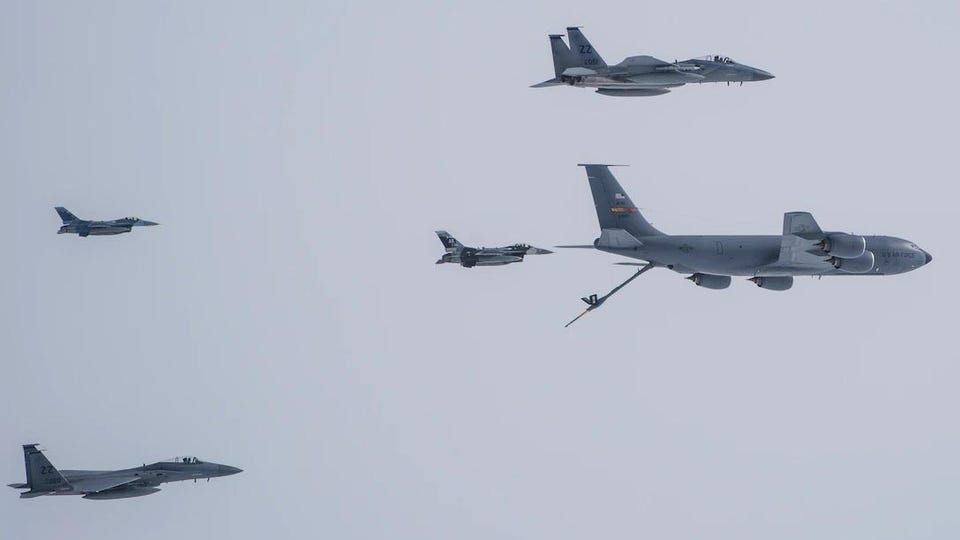
Early next year, the US Air Force will launch Project Kaiju – a project that will apply AI and machine learning to future cognitive electronic warfare (EW) systems to help aircraft penetrate air defenses that rely on multispectral sensors, missiles, and other air-defense assets. Project Kaiju will be made up of nine sub-projects and tasks, all named after famous monsters.
In a recently posted contract action, the Air Force points out that, though the US currently holds aerial dominance, some peer adversaries are attaining more advanced detection and anti-aircraft technologies. This has led to the need to use cognitive electronic warfare, artificial intelligence and work through advanced systems integration “to generate and/or maintain a competitive advantage due to the sheer volume of data, speed of activity, and complexity of threat capabilities.”
The document goes on to state. “U.S. aircraft are increasingly required to operate in hostile environments heavily defended by integrated air-defense systems,” or IADS. “…, U.S. aircraft will be expected to counter IADS equipped with missiles guided by sensors that operate with various levels of coordination between the [electro-optic/infrared] and [radio frequency] regimes for detection, navigation and/or tracking processes.”
The five-year Project Kaiju will seek to develop AI and machine learning technology that can migrate into fielded systems. The project will rely on open-systems standards, agile software algorithm development, and process validation tools. Plans are in place to spend as much as $150 million US to advance technologies in nine main tasks: big data for cognitive EW research; software-defined radio (SDR) research; multi-spectrum threat defeat; RAPTURE Laboratory; electronic attack demonstration; real-time algorithm development; RF EW demonstrator for next sortie mission data reprogramming; advanced threat defeat; and program management.
Air Force researchers say they plan to award two contracts for Project Kaiju effort, one for the main nine tasks, and one for extra work on the electronic attack demonstration, real-time algorithm development, RF EW demonstrator for next sortie mission data reprogramming, and advanced threat defeat. Work on these contracts will be at the top-secret classification level.
Researchers will conduct industry briefings at a yet-unspecified time in late October before releasing a formal solicitation for Project Kaiju. The formal solicitation is expected in January 2022.
